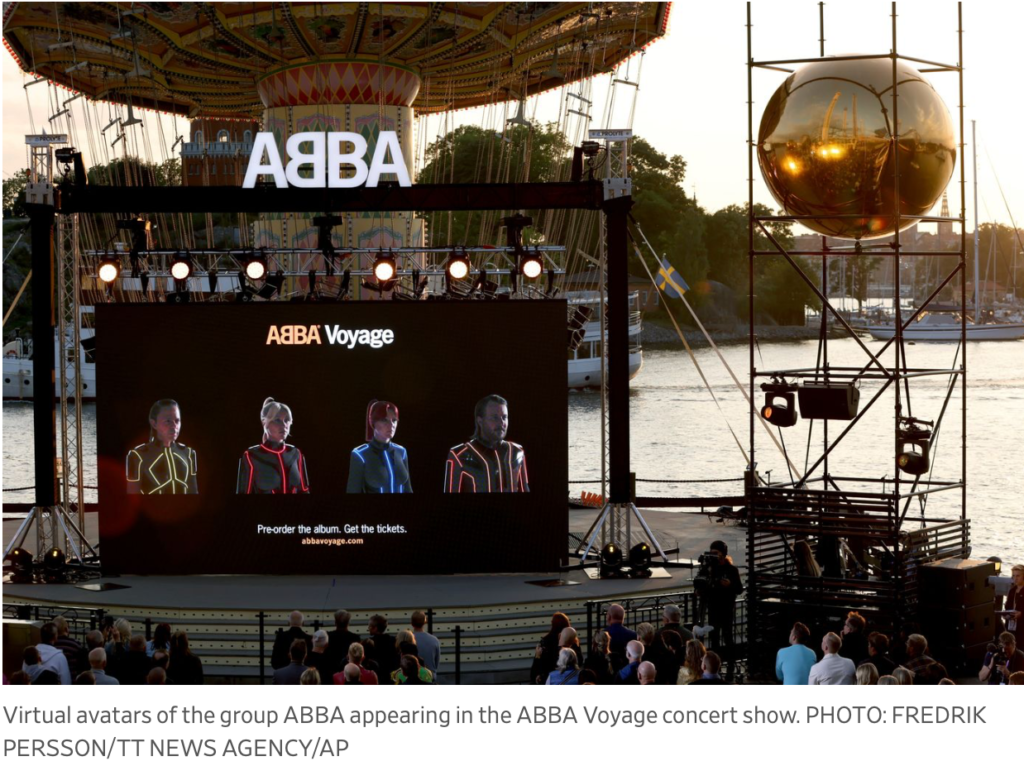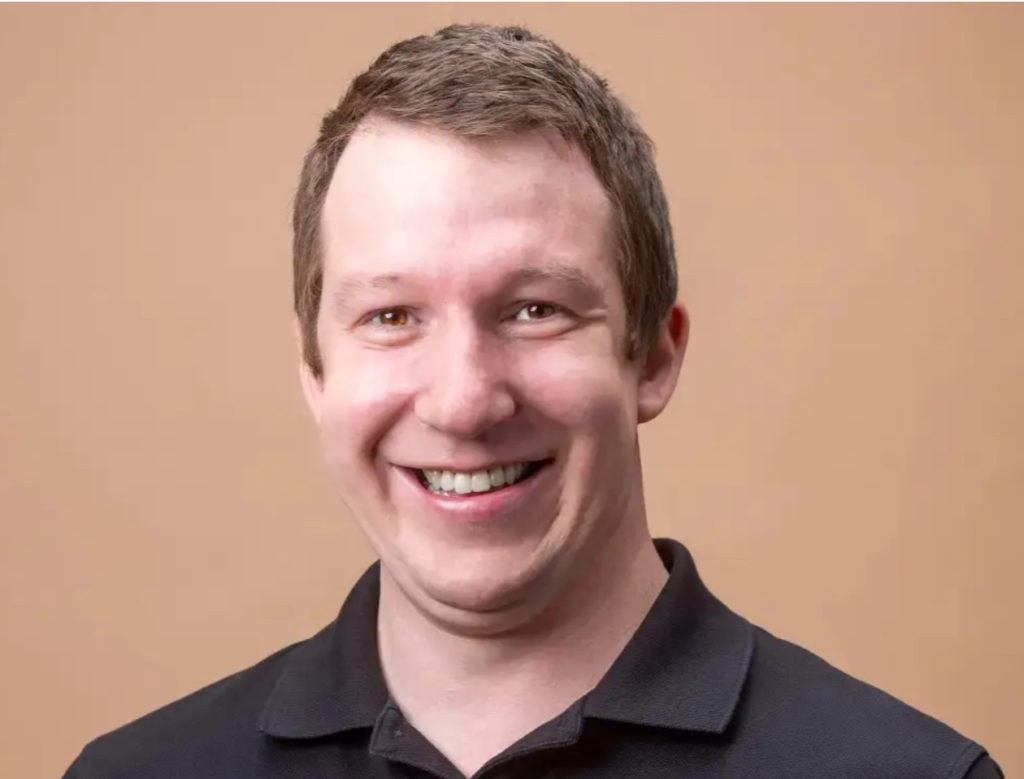Behind the Making of My AI Digital Double
... The scan took place at the CAA Vault, a one-story, warehouse-type facility in Los Angeles built by Creative Artists Agency, one of the entertainment industry’s top talent agencies. The Vault gathers several scanning stations—body, face, voice capture—in one place, so visitors can in a single day leave with a replica of themselves that appears on screen as authentic as the genuine article. ...
CAA clients own the digital doubles created in the Vault, giving them, the agency hopes, more license to police replicas made without their permission. ...
CAA and others want Washington’s oversight, envisioning a world in which control of one’s replica joins other inherent rights. “We didn’t have that luxury of waiting for the law to catch up,” said Alexandra Shannon, CAA’s head of strategic development and the architect behind the Vault. ...
CAA Chief Executive Bryan Lourd helped usher in one of the earliest adoptions of this throwback technology when Carrie Fisher, the actress who first portrayed Princess Leia in 1977’s “Star Wars,” died halfway through reprising the role in a new trilogy released between 2015 and 2019. Fisher was the mother of his daughter, Billie Lourd.
The filmmakers approached the Lourds for permission to recreate Fisher digitally in the last movie in the trilogy, titled “The Rise of Skywalker”—and struck a deal to make it happen. “That’s how it should go,” Bryan Lourd said. ...
See the full story here: https://www.wsj.com/tech/ai/behind-the-making-of-my-ai-digital-double-0ff22ac8
The video is here: https://m.wsj.net/video/20231221/f0584bec-8adf-4b5c-ba0a-cef42039eb52/2/hls/manifest-hd-wifi.m3u8#t=0

The top 12 people in artificial-intelligence policy, ethics, and research
- Insider has compiled a list of 100 people at the forefront of artificial intelligence.
- The list spans several industries, from hardware to ethics.
- See who made the list for policy, research, and ethics, and learn how they're making an impact.

Emily Bender: Bender, a linguist who teaches at the University of Washinton, has significantly contributed to our understanding of how large language models like ChatGPT process language and their limitations in processing non-English languages. Bender has urged companies and policymakers to focus on the potential dangers of AI – harms such as the possibility of human-sounding AI manipulating users – and possible solutions.
...

Jack Clark: Clark is a co-founder of AI startup Anthropic, which has raised over $5 billion, including a $4 billion check from Amazon in September. Before starting Anthropic, he was the policy director at OpenAI. Clark said he's read thousands of AI research papers and uses his knowledge to discuss the future of AI with world leaders and other policymakers. He also writes a popular newsletter called Import AI. "The greatest challenge of the 21st century is to make an increasingly fast-moving technical world 'legible' to a large number of people," he wrote in his Import AI bio. "Things will be weird. Be not afraid."
...
See the full article here: https://www.businessinsider.com/ai-100-top-12-people-policy-ethics-and-research-2023-11#ali-alkhatib-1
VERSES Identifies New Path to AGI and Extends Invitation to OpenAI for Collaboration via Open Letter
The open letter, published in The New York Times, outlines how VERSES is pursuing an alternative approach to AGI using Active Inference, a method pioneered by VERSES’ Chief Scientist, Karl Friston. Active Inference comprises a set of techniques and tools enabling the design and deployment of intelligent agents capable of automatically and efficiently seeking out and learning from relevant data, resulting in an auditable and human-explainable decision-making and action-selection process.
VERSES’ latest research results indicate that its Active Inference agents may soon be able to match and surpass the performance of leading AI state-of-the-art approaches based on deep learning while using orders of magnitude less data and fewer computations. The Company expects to share more details and validation tests with partners and the broader community in the coming months. ...
Following the Free Energy Principle — which reconciles our brains’ predictions about the world with reality to reduce the differences between the two — Active Inference codifies mathematical principles that explicitly link intelligence, cognition and rational behavior to physical processes at any scale, from macroscopic to microscopic. With this framework, VERSES aims to solve probabilistic AI’s tractability problem, allowing users to design and deploy adaptive, real-time, scalable AI. ...
See the full story here: https://aithority.com/machine-learning/verses-identifies-new-path-to-agi-and-extends-invitation-to-openai-for-collaboration-via-open-letter/
First-ever hyperrealistic AI actor appears in Chinese TV series
Lili Ziren is the first-ever AI actor in China to appear in a TV series "I Am Nobody," alongside human co-stars, according to Cryptopolitan and New Lines Magazine.
She plays the role of Er Zhuang in a series produced by Tencent Animation and Comics and distributed by Youku, a Chinese video streaming platform owned by e-commerce giant Alibaba. Lili even has her own IMDb page.
Lili's striking resemblance to a human performer has earned her a burgeoning fan base on Chinese social media. “I feel like she’s better than a real person. After this, let’s swap all [human actors] with these AI actors,” wrote a user on Douyin, China’s original version of TikTok. ...
See the full story here: https://www.msn.com/en-ca/entertainment/tv/first-ever-hyperrealistic-ai-actor-appears-in-chinese-tv-series/ar-AA1lKOmB

AI Memory Mirrors Human Brain
Summary: Researchers unveiled a significant similarity between AI memory processing and human hippocampal functions. This discovery, bridging AI and neuroscience, highlights a parallel in memory consolidation – a process crucial in transforming short-term to long-term memories – in both AI models and the human brain.
The team focused on the Transformer model, a cornerstone in AI advancements, and found its memory processes mimic the brain’s NMDA receptor mechanism. This innovative research not only propels Artificial General Intelligence (AGI) development but also offers a deeper understanding of the human brain’s memory systems. ...
See the full story here: https://neurosciencenews.com/ai-human-memory-agi-25381/
NuEyes wins FDA approval for augmented reality surgical visualization tech
NuEyes announced today that the FDA granted approval to its patent-pending NuLoupes augmented reality smart glasses technology. ...
Surgeons and dentists can move from traditional fixed magnification to NuLoupes high-resolution variable digital magnification. It provides them with more versatility and viewing area. Additionally, NuEyes’ patent-pending camera system provides 3D stereoscopic imaging with near-zero latency. ...
NuEyes offers the NuLoupes developer kit with a complete SDK that offers exclusive access to a number of features. Those include the 3D stereoscopic camera sensors, IR sensor, IMU, android operating system, Unity plug-ins and more. The company plans to begin shipping developer kits in the first quarter of 2024. ...
See the full story here: https://www.massdevice.com/nueyes-fda-approval-augmented-reality-tech/
None of these anchors are real: Channel 1 plans for AI to generate news, broadcasters
Founder and entrepreneur Adam Mosam said the news aired on the network will come from legacy outlets and commissioned freelance reporters. Additionally, the AI will generate its own reporting from public records and government documents. ...
AI network to launch on streaming by February
The creators Mosam and film producer Scott Zabielski said they plan to launch Channel 1 AI for free with ad-supported streaming on apps by February.
Users users will be able to access the network through the services Crackle or Tubi. ...
Questions raised about AI's journalistic integrity
Channel 1 has raised concerns about the accuracy and journalistic integrity of AI generated reporting.
LAist Associate Editor Aaricka Washington said the promotional video shows how easy it will be for AI news to spread misinformation. ...
See the full story here: https://www.desmoinesregister.com/story/tech/news/2023/12/14/channel-1-ai-news/71925360007/
Pope Francis calls for binding treaty to regulate AI
Pope Francis on Thursday called for a binding international treaty regulating artificial intelligence's development and advancement, warning it could lead to a "technological dictatorship" if left unchecked.
Francis delivered the warning as part of his annual Message for the World Day of Peace, as he said any benefit of technological research should be determined by how it helps in bringing peace and common good to the world along with the "service of the integral development of individuals and communities." ...
He specifically cited the threat posed by AI when deployed "in campaigns of disinformation that spread false news and lead to a growing distrust of the communications media, noting that while AI can produce coherent texts there "is no guarantee of their reliability."
Francis added that misuse of AI can also contribute to threats to peace, including "discrimination, interference in elections, the rise of a surveillance society, digital exclusion and the exacerbation of an individualism increasingly disconnected from society."
He also warned of more direct threats to peace through the use of AI in military operations. ...
See the full story here: https://www.upi.com/Top_News/World-News/2023/12/14/Vatican-Pope-Francis-AI/2481702565701/

The Weeknd’s Avatar Can Be as Good as the Real Thing
... Marvin Gaye said it best: “Ain’t nothing like the real thing.” But it might not be so when it comes to concerts. Research shows that our social responses to avatars are comparable to those observed during real-world interactions, even when the avatar is controlled by AI, or its appearance deviates significantly from what we expect. ...
Moments shared in VR, for example, are stored in our autobiographical memory, the same place as lived experiences. In this way, virtual reality concerts are not just moving images on a screen. To your brain, that virtual stage dive just happened.
Even if you’re not strapping on an immersive headset, watching virtual avatars on a flat screen can stir emotions similar to those elicited in immersive VR....
These platforms also empower audiences to set their own boundaries. For the more than 40% of women who have reported sexual harassment at live music events, being able to block users or set interpersonal distances with other avatars by clicking a button means a safer fan experience. ...
More than half of millennials and Gen Zers report having an interest in attending a virtual concert. ...
AI-Powered Microdisplay Adapts to Users’ Eyesight
“NeuralDisplay” could make AR less squinty, blurry, and nausea-inspiring
... Microdisplay manufacturer KOPIN, of Westborough, Mass., working in partnership with MIT’s Computer Science & Artificial Intelligence Laboratory, may have a solution: the NeuralDisplay. It combines eye-tracking with machine learning to compensate for a user’s vision on-the-fly without additional optics. ...
The first NeuralDisplay is a 1.5-inch square micro-OLED with a resolution of 3,840 x 3,840 and a maximum brightness of 10,000 candelas. These specifications place it in league with other leading micro-OLED, like Sony’s 1.3-inch 4K micro-OLED. It also has an unusual quad-pixel arrangement that places red, blue, and green sub-pixels alongside a fourth pixel containing a pixel imager. ...
The pixel imager ... has a different task: to measure the light reflected by the user’s eyes. ... to deduce details about a user’s eyes, including the direction of their gaze, their eye position in relation to the screen, and the dilation of their pupils. ...
Those measurements feed into an AI model that learns to compensate for the quirks of each user’s vision by adjusting the brightness and contrast of the display. ...
The NeuralDisplay isn’t a panacea, its makers confess, and its ability to compensate for near or farsightedness is uncertain. ...
See the full story here: https://spectrum.ieee.org/augmented-reality-display-adapts
Pages
- About Philip Lelyveld
- Mark and Addie Lelyveld Biographies
- Presentations and articles
- Tufts Alumni Bio